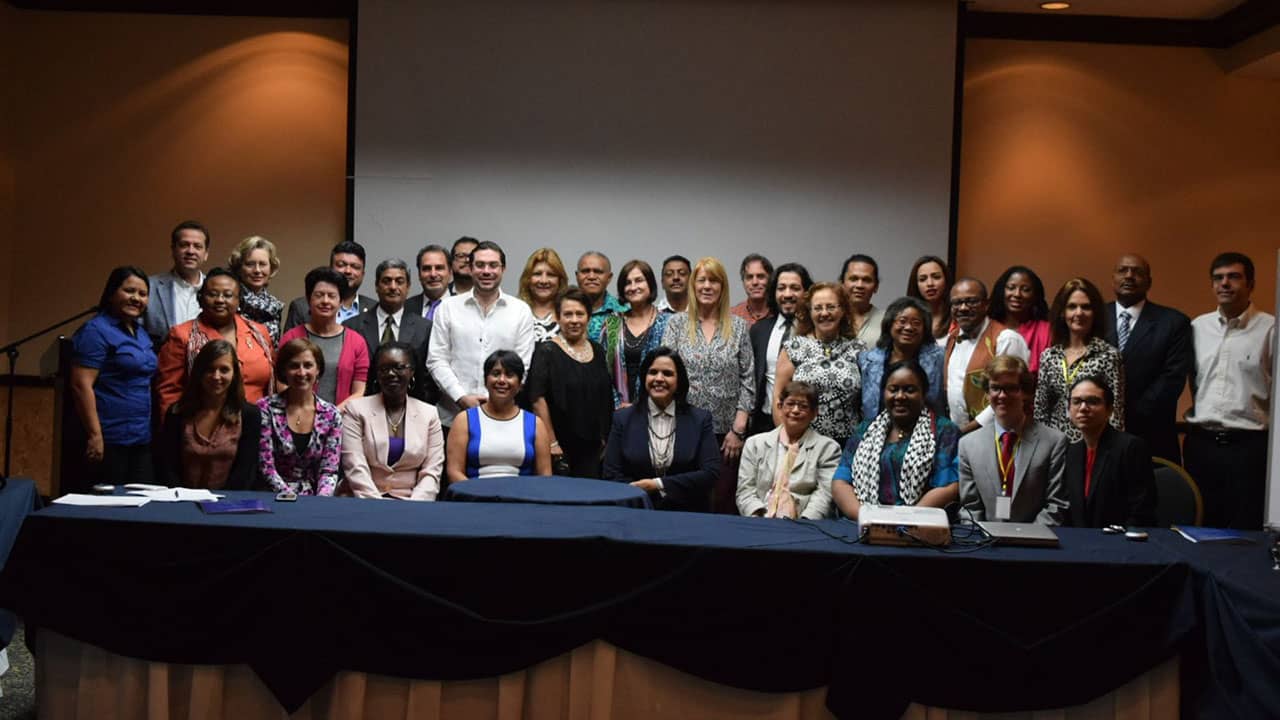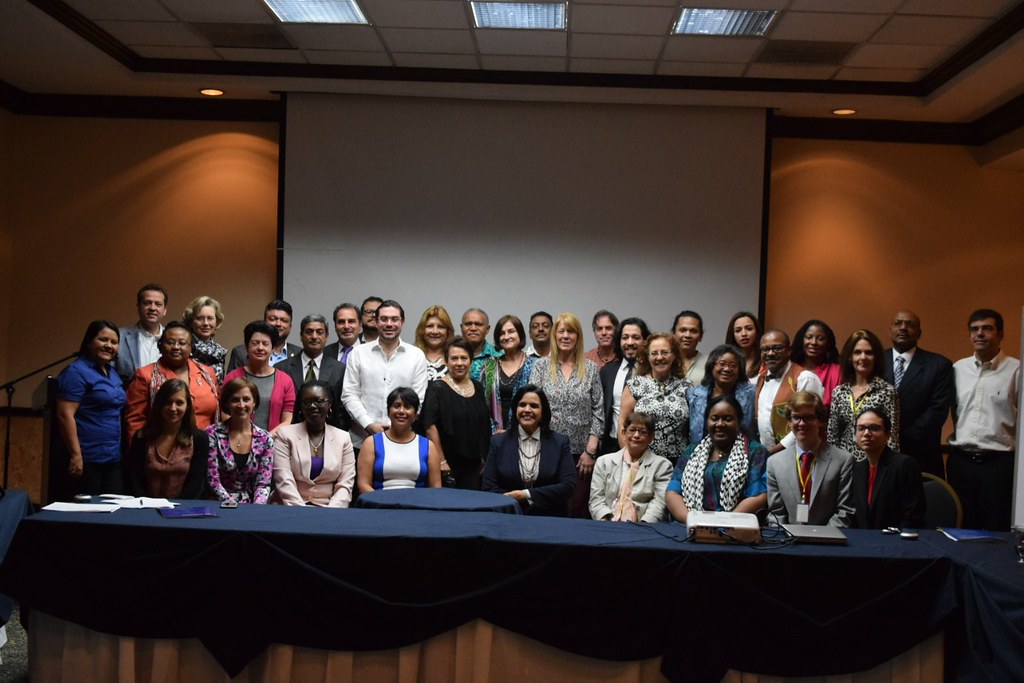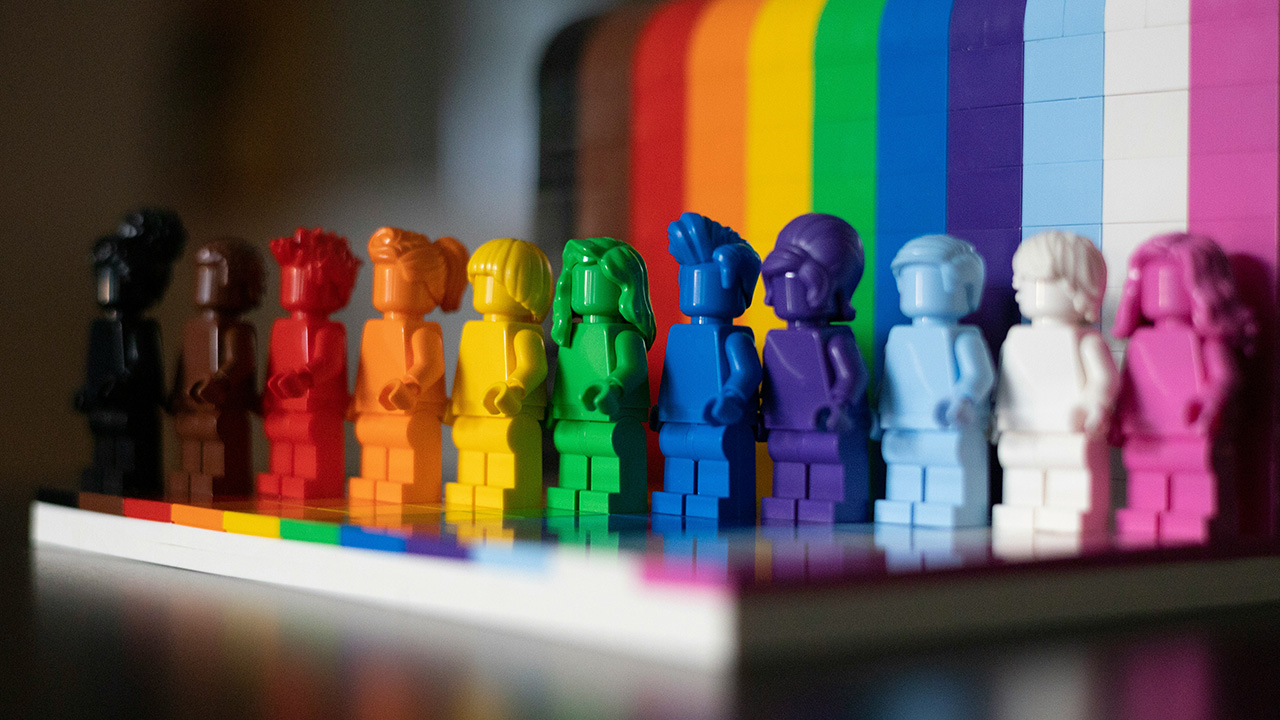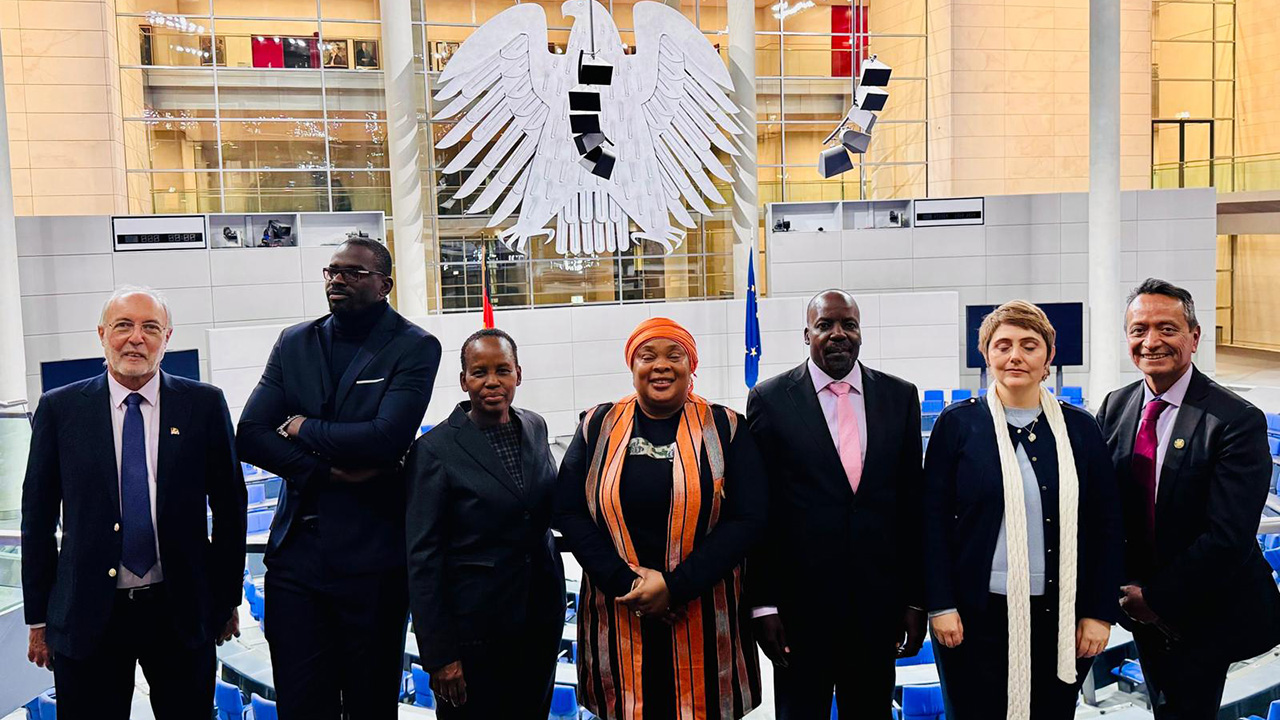
San Salvador, El Salvador – Parliamentarians for Global Action (PGA) convened a Strategy Session on the Role of Parliamentarians in Promoting Non-Discrimination based on Sexual Orientation & Gender Identity in the sidelines of its Annual Parliamentary Forum 2015. This year’s forum addressed the Role of Parliamentarians in support of Peace and Security and was co-organized with the Legislative Assembly of El Salvador.
With the participation of Tracy Robinson, Rapporteur on the Rights of LGBTI Persons at the Inter-American Commission for Human Rights, Parliamentarians from 17 countries in Latin America and the Caribbean, Asia, Africa and Europe, respectively and six representatives from civil society in Latin America and the Caribbean, the session sought to:
- Share best practices and effective strategies among Parliamentarians from different regions of the world, human rights practitioners and NGO representatives to advance non-discrimination based on sexual orientation and gender identity (SOGI); and
- Review, discuss and provide input to a draft version of a user-friendly, Parliamentary Handbook on Human Rights and SOGI prepared jointly by PGA and the United Nations Development Program (UNDP), and expected to be published in early 2016.
To this aim, the Strategy Session on SOGI was structured in two sections allowing for a first informal discussion where participants had three minutes to offer their perspective on opportunities and challenges to equality and non-discrimination in their countries and, where available, were paired with a representative from the country or region.
This section, moderated by Dip. Minou Tavárez Mirabal from Dominican Republic and President of PGA, revealed the differences within regions. While South American countries such as Argentina, Brazil and Uruguay have established legislation to protect the rights of LGBTI persons, in Central America, Guatemala and Honduras have backtracked in equality gains and legislation has become more conservative. El Salvador, our host country, noted the importance of the recent modification to the Penal Code to increase the sanctions to hate crimes motivated on the basis of race, ethnicity, political views, religion, gender, gender identity and expression, sexual orientation or any other equivalent.
Parliamentarians from Fiji expressed that all individuals are granted the same rights in the Constitution and no specific mention to LGBTI persons has been incorporated in their laws as Nepal, for example, did recently with the inclusion of gender and sexual minorities in their new Magna Carta. Mr. Lekhak highlighted the importance of respecting gender identity and its impact in building a more tolerant and inclusive Nepalese citizenry.
Lastly, Parliamentarians from Ghana stated that the country criminalizes homosexuality and discussing this issue is not relevant for society. If there is a topic in which all Ghanaians agree, and where they are united, is in preserving the statute on criminalization of same-sex relations. In Tanzania, the law does not categorically rule against homosexuality, but it is silent.
In the second section, Commissioner Robinson facilitated the discussion on a draft version of the Parliamentary Handbook on Human Rights and SOGI inquiring biggest challenges in advancing LGBTI rights from both NGOs and Parliamentarians’ perspective, entry points that have proven successful to addressing LGBTI rights in Parliament, sections of the draft that were more and less useful to Parliamentarians, and strategies used within regions that can be offered as guidance to neighboring countries.
Main points discussed:
- Importance of education and continuous sensitization among Members of Parliament (MPs) on these topics: sexual orientation, gender identity, gender expression, and bodily diversity;
- The leadership role that an MP plays is key to this agenda. It is not only through non-discrimination that behaviors are changed, but more importantly through open, public and positive actions and statements;
- Seeking and maintaining alliances with key stakeholders, including other sides of the political structure and representatives of civil society, is fundamental to advancing human rights of all individuals;
- Create awareness around the multiple forms of discrimination and invisibility of certain communities. Afro-descendants, people living in poverty, and trans and intersex persons are subjected to an increased level of discrimination and violence;
- Functionality versus principled approach in human rights: should MPs choose to legislate on SOGI based on what they may gain (recognition, more votes, etc.) or should they do so on the basis of promoting human rights?
- LGBTI persons have to be at the discussion table to set accountability mechanisms as well as the appropriate language to name and identify needs and challenges.
PGA is very grateful for the interesting and active discussion of all participants as well as their invaluable input and contributions to strengthen this first draft of a Parliamentary Handbook on Human Rights, Sexual Orientation and Gender Identity.
The Parliamentary Handbook on Human Rights, Sexual Orientation and Gender Identity, a joint initiative of United Nations Development Program (UNDP) and PGA, will be published and widely circulated after all contributions and revisions have been made.
PGA would like to acknowledge the support of Hivos, the Global Equality Fund, the Arcus Foundation and the Open Society Foundations to PGA’s SOGI Campaign and this activity.
PGA would also like to thank UNDP for facilitating the participation of LGBTI civil society representatives in this consultation.





